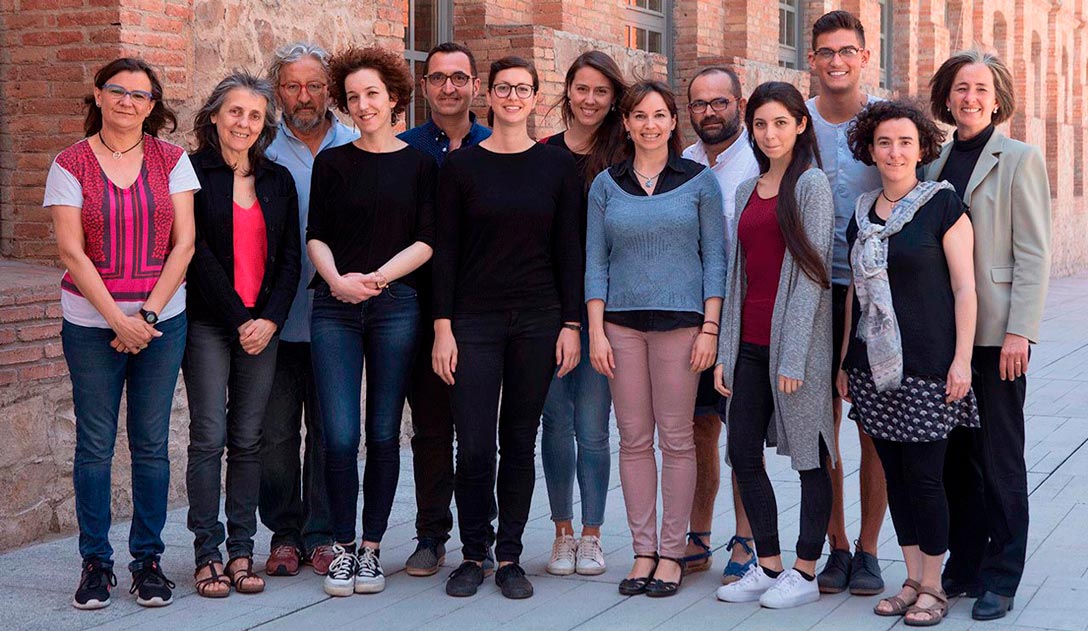Quinze anys formant intèrprets en llengua de signes catalana
3.2. Community
Fifteen years training Catalan Sign Language interpreters

Catalonia is home to some 7,000 deaf people and Catalan Sign Language (LSC from the Catalan) users. Ensuring that they can access social, healthcare or educational services, get news as it breaks, or follow a public or cultural event requires professionals trained in LSC interpreting. Until well into the 21st century, the only option for people seeking to pursue a career in this field was to complete a two-year vocational education programme offered at just four schools in all Catalonia.
But that offer was not enough to meet the existing needs. The Catalan Federation for Deaf Persons (FESOCA) relayed this concern to UPF, which became the first and, to date, only university in Spain to include sign language in the bachelor’s programmes offered by its Faculty of Translation and Language Sciences. UPF could see itself reflected in other benchmark institutions in Europe, such as Humboldt University of Berlin, which offers a three-year bachelor’s degree programme in Deaf Culture and a two-year master’s programme in German Sign Language Interpreting.
‘One reason for launching the university studies is that the deaf community needed more interpreters’, explained Delfina Aliaga, a teacher and researcher of LSC at UPF, accompanied by Mireia Isal, a hearing lecturer in these studies who interpreted for the interview conducted for this story.
In 2003, the UPF Faculty of Translation and Language Sciences offered the first Expert in Catalan Sign Language Interpreting postgraduate course, a second edition of which was held in 2007. The courses’ good results led to the inclusion of training as a Catalan Sign Language translator and interpreter in the faculty’s bachelor’s degree programmes from 2008 on. Students on these programmes have to specialize in two languages, meaning they can combine English with French, German or, since 2008, LSC.
Around twenty students who enrol at the faculty each year choose LSC as one of their two specialization languages. All are hearing students, as that is necessary to be able to interpret from an oral to a signed language. Aliaga, a lecturer on LSC at UPF, believes this number could grow if public and, especially, young people’s awareness of LSC were raised. According to Isal, who trained in LSC as part of her bachelor’s degree in Translation and Interpreting at UPF, on which she is now a lecturer, ‘I did not know about LSC before coming to university. But it seemed to me that it was necessary to learn a language used by many deaf people in the country in order to help them feel included.’
In addition to teaching, the LSC-UPF Actua Centre for Catalan Sign Language Studies (LSC-UPF Actua), founded in 2017 and linked to the university’s Catalan Sign Language studies, also promotes research in this field, through LSC-LAB, as well as the dissemination and social impact of LSC.
Over the last fifteen years, regulatory recognition of LSC has been strengthened. In 2007, Spain passed a law recognizing the country’s sign languages (including the Spanish and Catalan ones), and, in 2010, the Catalan regulations on LSC came into force.
For Aliaga, these regulations have been ‘small steps forward’; nevertheless, in her view, deaf people still ‘face many communication barriers’ to access public services or social and cultural activities. For LSC-UPF Actua, the university is and must continue to be a driver for the spread of Catalan Sign Language throughout the country with a view to achieving the deaf community’s full integration.
